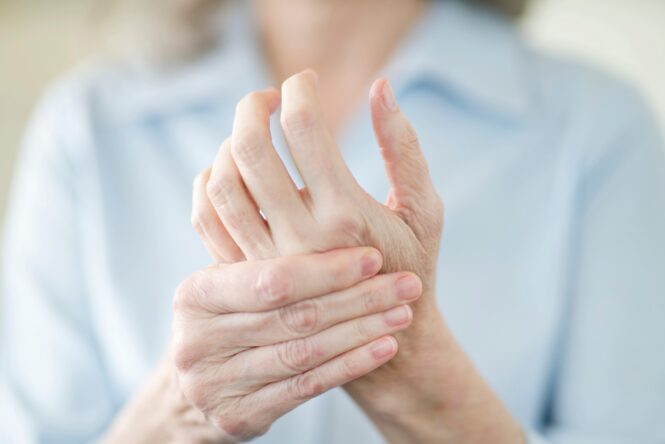Are you suffering from muscle or joint pain for quite a long time? Do you have any chronic back issues? There are millions of people who suffer from musculoskeletal problems every year from strains and sprains to back pain. Many people often consider medication as the only solution. However, at this point, you need to think about whether you should consult an orthopedic doctor.
An orthopedic doctor is proficient in analyzing and treating issues concerning the musculoskeletal system. They play a very significant role in the identification, treatment, and rehabilitation of various musculoskeletal conditions. From a minor sprained ankle to complicated surgeries such as hip replacement, consulting an orthopedist should be your foremost priority. Below we have listed some of the conditions commonly occurring among people. If you are suffering from any of these, it’s the right time to see an orthopedic doctor.
1. Trouble Climbing Stairs
As your age progresses, the joints in the hips and knees begin to deteriorate. If you feel pain while walking or climbing stairs, you should immediately consult an expert such as aicaorthopedics. Chronic pain lasting more than six months has adverse effects on your health and ultimately you might be recommended for surgery.
2. Lower Back Pain

Approximately 80% of adults suffer from low back pain at some point in your life. It can be an either dull or sharp pain. Numerous causes can trigger low backache from lifting heavy objects to age-related spinal changes. Though lower backache often lasts a few days. If it lasts more than a few weeks, you should see an orthopedic specialist. Also, you should book an appointment if you suffer from sudden weight loss or extreme fever indicating severe conditions.
3. Repetitive Strain Injury
Repetitive strain injuries result from forceful motions, poor body posture and exerting a lot of pressure on certain muscles and sometimes, special treatment is required, says hss.edu. These injuries typically affect the neck, arms, and back. One common condition is carpal tunnel syndrome affecting muscles and nerves of the hand. A few common symptoms you will frequently come across include stiffness, tenderness, and tingling. Make sure to have an early diagnosis for effective treatment.
4. Numb Hands

If you feel like dropping things more frequently, you are more likely to have tingling in your thumb or index finger. The nerve from forearms to wrist travels through a tunnel giving a sensation to your thumb and eventually your fingers. The condition is caused primarily from a previous wrist fracture or if you are consistently working with heavy machinery.
5. Painful Joints
Consistent chronic pain in your joints indicates that something is wrong. The term “chronic” refers to pain lasting for more than three months. This soreness is associated with tenderness and puffiness around the joints. It may also indicate that bones of the joints rub together eventually leading to arthritis. The condition is more common in women compared to men and the possibility of developing arthritis increases with age. Any prior injuries, repetitive bending of joints and excess weight increase the likelihood of arthritis.
6. Hip Pain

You may feel an ache in your hip, thigh or buttock. In case of minor hip ache, ice or heat and pain relievers can help you. Arthritis or intense hip pain requires professional treatment and you may need to go to an emergency department immediately.
For all conditions discussed above, an orthopedic examination is important for the best pain-relieving procedures.
Medical History Exam
Make sure to describe every possible detail of your pain. For instance, where exactly you feel ache, how frequent it hurts, the severity of pain and what type of it you are suffering from. Also, you need to evaluate whether this ache is affecting you from enjoying everyday activities.
In addition, you should also list any past injuries that might contribute to your pain. Let your doctor know every detail about the chronic pain you are dealing with. Your orthopedic assessment will cover your complete medical history such as arthritis. It’s important to communicate accurate information to reduce the risk of complications from medications to conflicting conditions. Inform your doctor about every medication you take or any allergies you are suffering from.
Physical Tests
To thoroughly assess your condition, your orthopedic doctor is more likely to carry out a few physical tests. These examinations are exclusively used for checking the range of motions and reflexes. Your doctor will also check the affected area. Evident lumps, swellings in your spine, or bruised skin are all indications of an orthopedic condition. You might also be asked to perform various movements. It helps a doctor examining your flexibility and shortlist potential conditions for a more precise diagnosis.

Imaging Tests
For a more in-depth analysis, you might be asked for imaging tests such as magnetic resonance imaging (MRI) or X-rays. These tests provide your doctor with elaborate information or images on your condition and assist them in detecting any indications of displacement, infection or swelling. Also, remember you might be asked that you need to take more than one test. For instance, shoulder pain can be a result of musculoskeletal problems in your neck or upper spine whereas hip pain is caused by problems with the lower part of the spine.
Conclusion
Musculoskeletal conditions are among the most common disorders. Many people don’t take it seriously resulting in adverse conditions over time. If you completely want to get rid of any tenderness in your bones or joints, you need to get an appointment as soon as possible.
Once the orthopedic evaluation is complete, your doctor will discuss various treatment options with your primarily depending on your medical history and results of physical and imaging tests. If your pain is preventing you from an active routine, schedule an orthopedic evaluation to make sure that any unidentified conditions don’t worsen.
 Imagup General Magazine 2024
Imagup General Magazine 2024



